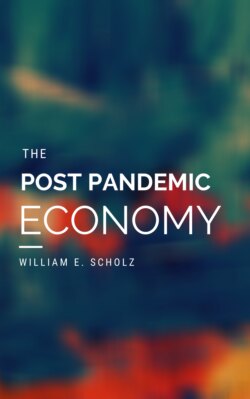Читать книгу The Post Pandemic Economy - William E. Scholz - Страница 15
На сайте Литреса книга снята с продажи.
Lender of Last Resort
ОглавлениеThe Federal Reserve's Core argument is that it can intervene in the complexity of currency markets to prevent financial collapse. This is called "The Lender of Last Resort (LLR)" function. The Federal Reserve as LLR is its modus operandi. As the LLR, The Fed can purchase distressed assets from financial markets. In doing so, the Federal Reserve creates an artificial demand or intervention.
The problem with a National institution operating as the Lender of the Last Resort is that the institution never truly remains national in scope. Due to the volume of transactions in the United States economy, the United States Federal Reserve must intervene in the purchasing of distressed assets owned by supra-national interests or other countries, including unscrupulous countries such as China.
Other countries prey upon the United States financial system in this regard. In the post-bailout economy, supra-national financial interests recognize that the Federal Reserve will bail-out risky investments. Multi-national corporations, State financial actors, and other privately held supra-national conglomerates have a perverse incentive to take advantage of the United States Federal Reserve as Lender of Last Resort.
The immediacy by which US Congress enacted bailouts to save the American economy during the coronavirus is symbolic of multi-national interests using the United States Federal Reserve to bail-out distressed assets. Multi-nationals now have a financial interest to make risky investments in the United States knowing that US Congress and the Federal Reserve System will intervene if necessary.
Obviously, this is a dangerous and unsustainable Economic Order. The New, Global Economic Order offers a reset of this flawed system, while lifting the economic interests of the worker.
Decentralized National Treasury. A World Treasury performs administrative functions for a World Government ‘with teeth.’ However, the function of the World Treasury is to establish and monitor the currency inflow-outflow from National Governments. Due to its decentralized and bottom-up nature, National Governments maintain control over their local currency supply.
The "printing" of local notes stays in the portfolio of National Governments. The International Treasury system offers guidance to National Governments, but ultimately the inflationary-deflationary decisions are determined by the appropriate Congressional and Democratic institutions of Member Nations.
The International Monetary Authority therefore acts as a World Treasury while maintaining the sovereignty and local decision-making apparatus of National Governments. While the Federal Reserve System weakens National Sovereignty, the International Monetary Authority strengthens National Sovereignty at the Foundation.
